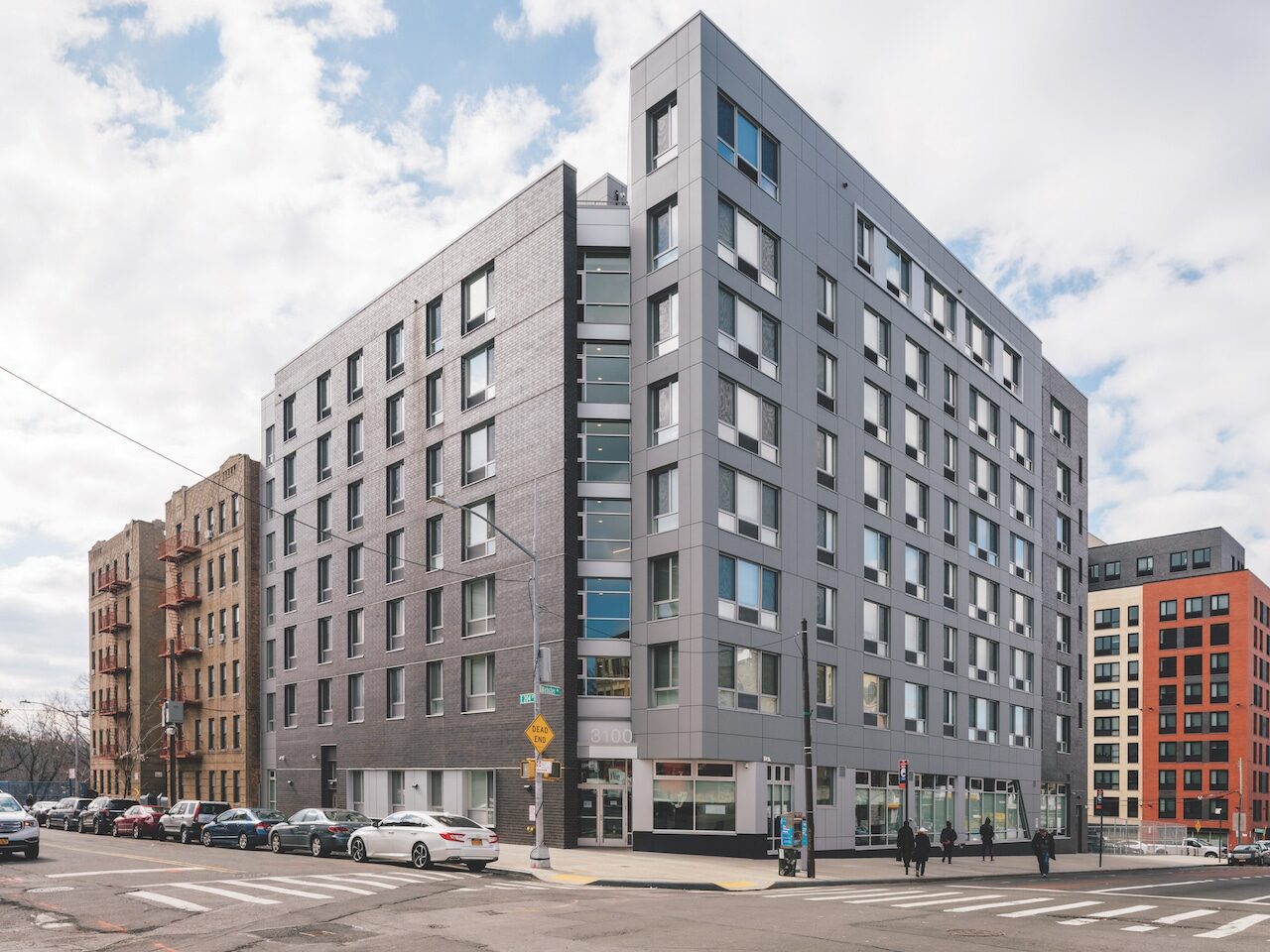Our Issues: Housing and Homelessness

With homelessness at record levels, we must do more to get people into permanent housing…
The Doe Fund has over 1,000 units of permanent affordable and supportive housing in operation and development at 11 residences for special needs populations including veterans, families, and individuals with disabilities, mental illnesses, and HIV/AIDS. But building more supportive housing alone will not end homelessness, because only 27% of people experiencing homelessness meet eligibility requirements for permanent supportive housing.
These criteria exclude people in the shelter system who are not disabled or “chronically homeless,” as well as low-wage workers at the greatest risk of housing insecurity. There is no vehicle to build housing for low income working people.
To solve this crisis, New York City must:
- Subsidize the construction of more 30% Area Median Income affordable housing for low income working people, as well as provide subsidies for nonprofits to finance, manage, and operate existing buildings (including converted hotels).
- Change financing and zoning laws to enable the development of modern, nonprofit-operated single-room occupancy housing for single, working adults.
- Create a Community Land Trust and charter an Affordable Housing Bank for NYC to accelerate development.
- Raise Floor Area Ratio minimums to 2.0 or higher for affordable housing in underserved neighborhoods.
- Remove local council members’ unilateral approval on Uniform Land Use Review Procedure so all elected officials can vote on major zoning issues.
- Provide refinancing for housing providers to take advantage of low interest rates and reinvest in community services.
- Use federal stimulus money to bolster city funds for the Department of Homeless Services.
- Support the use of modern 110% Fair Market Rents for Section 8 project-based housing vouchers on all new projects.
- Expand eligibility of housing subsidy vouchers so low income and homeless people who work full time at minimum wage can qualify.
… But Housing Alone Will Not End Homelessness
The City has prioritized supportive housing for special needs populations as the primary solution to reduce homelessness, but doing so has not achieved this goal. Five years ago, it took an average of 13 weeks for The Doe Fund to place Ready, Willing & Able participants into permanent housing, compared to 24 weeks today. One reason is because program participants do not qualify for housing vouchers as they are not considered special needs.
Another reason is because of widespread housing discrimination against formerly incarcerated people, who are a sizable portion of individuals experiencing homelessness. The Doe Fund supports legislation to prevent housing discrimination on the basis of arrest or criminal record by banning background checks.
People who have been incarcerated once are seven times more likely than the general public to become homeless, and people who have been incarcerated more than once are 13 times more likely. People experiencing unsheltered homelessness are more than twice as likely to have contact with the justice system than those living in shelters, and are nine times more likely to have spent at least one night in jail during the past six months.
Housing must be integrated into a broader, more comprehensive continuum of care that meets vulnerable citizens where they are. This includes City investment in housing units affordable for low wage workers, as well as in programs like Ready, Willing & Able that provide homeless New Yorkers with a pathway to employment—the single most important factor in creating and maintaining housing stability for non-disabled individuals.



